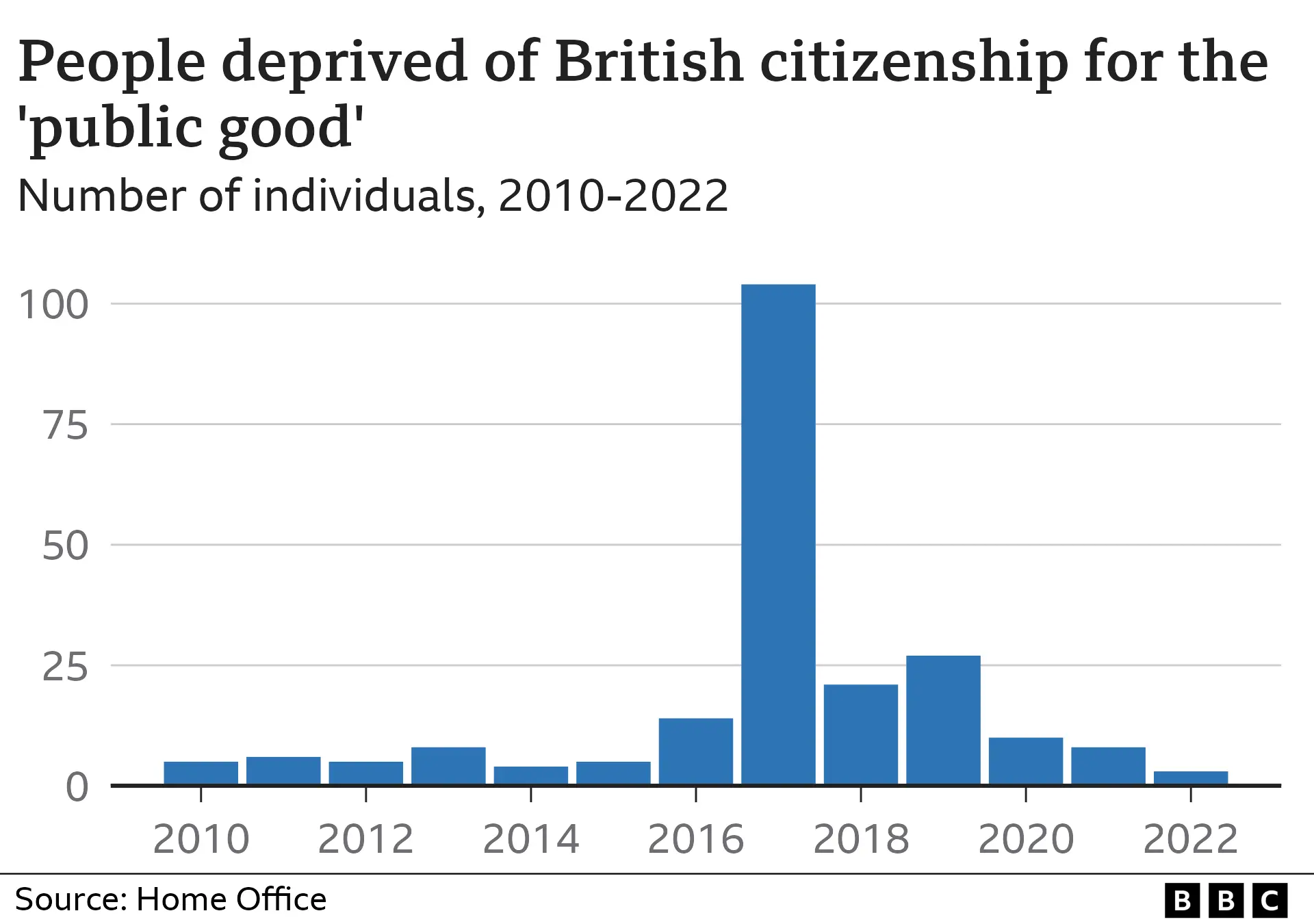Who is Shamima Begum and how can you lose your citizenship?
 BBC
BBCShamima Begum has lost a series of legal challenges aimed at overturning the government's decision to remove her British citizenship.
Ms Begum, now 24, left the country as a teenager to join the Islamic State group in Syria and is barred from returning to the UK.
Who is Shamima Begum?
Ms Begum is one of three east London schoolgirls who travelled to Syria in 2015 to support the IS group.
She was born in the UK to parents of Bangladeshi heritage and was 15 when she left.
She married an Islamic State fighter soon after arriving and went on to have three children, none of whom survived.
Her UK citizenship was stripped on national security grounds in 2019.
Ms Begum remains in a camp controlled by armed guards in northern Syria.
What is citizenship?
Citizenship is a legal status.
If someone is a UK citizen they have the legal right to live in the country and to access services such as welfare, education and healthcare. They can also vote.
Citizenship is also an identity, and often forms part of a person's sense of self and belonging.
Some people who are not citizens have the right to live in the UK permanently with many of the same rights. They are said to have "settled status" or "leave to remain".
How can citizenship be removed?
The government has the power to remove someone's UK citizenship in certain circumstances:
- If it is "for the public good" and would not make them stateless
- The person obtained citizenship through fraud
- Their actions could harm UK interests and they could claim citizenship elsewhere
The power has been used against members of banned organisations such as al-Qaeda or the Islamic State group, and those who obtained British citizenship fraudulently.
The person must also be eligible to apply for citizenship in another country. The UK has responsibilities under international law to avoid leaving people stateless.
The Nationality and Borders Act made it easier for the home secretary, in certain circumstances, to remove citizenship without telling the person in question.
What happened in the Shamima Begum case?
In February 2020, a tribunal ruled that removing Ms Begum's citizenship was lawful because she was "a citizen of Bangladesh by descent". It said removing her British nationality would not make her stateless.
However, Bangladesh said that was not the case and that she would not be allowed into the country.
In 2021, the Supreme Court decided that Ms Begum could not return to the UK to appeal against the decision to remove her citizenship.
In 2023, lawyers for Ms Begum challenged the removal of her citizenship at the Special Immigration Appeals Commission (SIAC).
They argued the decision was unlawful, as it did not consider whether she had been a child victim of trafficking.
However, SIAC ruled that while there was a credible suspicion that Ms Begum was a victim of trafficking and sexual exploitation, that did not stand in the way of the home secretary stripping her of British citizenship, as she had become a threat.
That decision was upheld at the Court of Appeal in February 2024.
The judges said Ms Begum "may well have been influenced and manipulated by others but still have made a calculated decision to travel to Syria and align with Islamic State".
On 25 March, she lost an initial bid to take the case to the Supreme Court.
How many people have lost their citizenship?
According to the Home Office, 220 people were stripped of their British citizenship for the public good between 2010 and 2022. That was almost always due to national security concerns.
The highest year on record was 2017, when 104 people lost their citizenship. In comparison, three people lost their citizenship in 2022, the latest year for which data is available.

What about other countries?
US-born citizens cannot have their status revoked because citizenship is a birth right guaranteed in the US constitution.
However, naturalised US citizens - people who have immigrated to the US - can be stripped of their nationality for reasons including being members of a proscribed group, and obtaining citizenship through fraud.
In Australia, a person can have their citizenship removed on national security grounds if they are a dual citizen of another nation.
Citizenship can be removed for treason, disloyalty and other national security reasons in 14 EU states, including Greece, France and Romania. It can also be removed without notice in the Netherlands.
